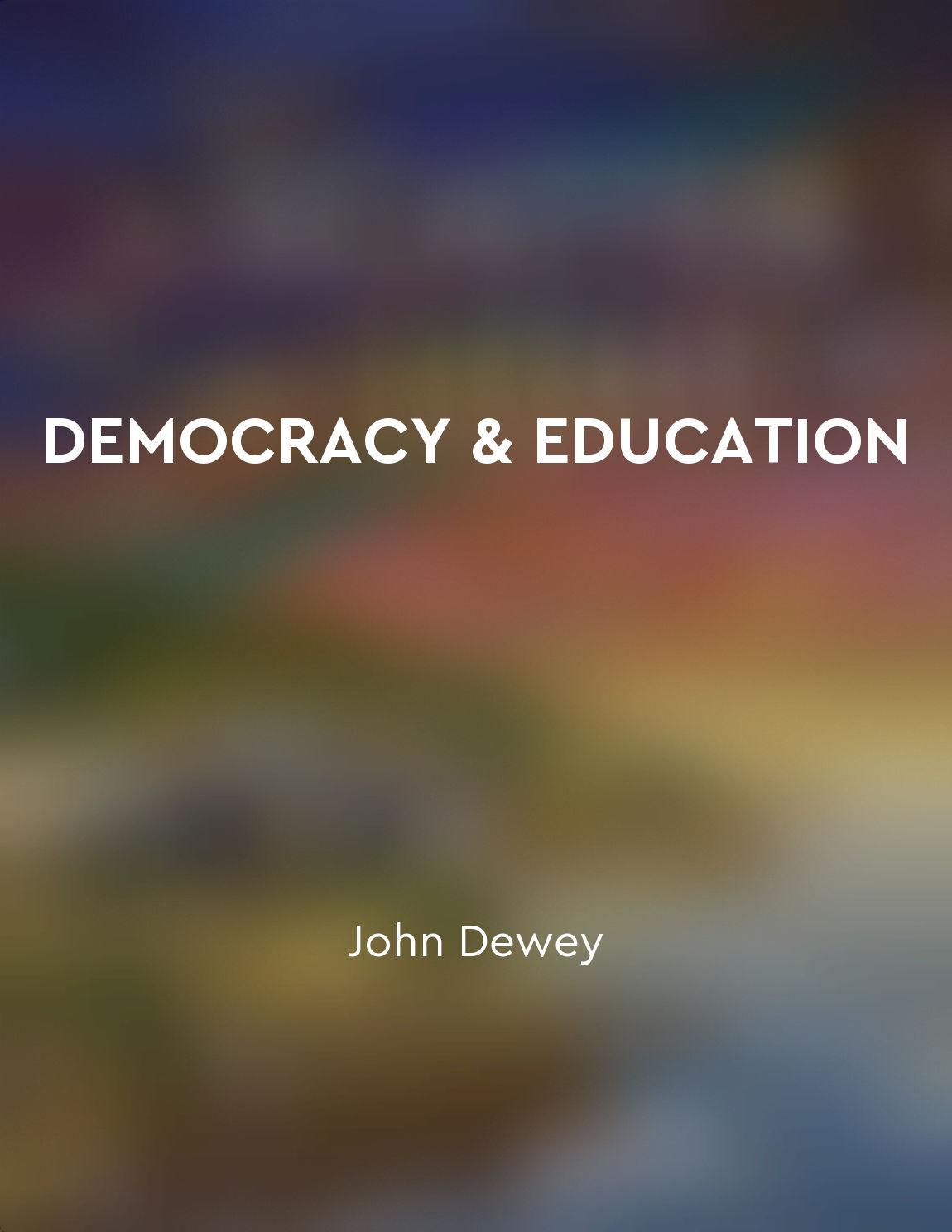Curriculum should be relevant to students' lives from "summary" of DEMOCRACY & EDUCATION by John Dewey
The curriculum should not be a mere collection of subjects that students are required to study, disconnected from their lives and experiences. Rather, it should be designed in a way that is meaningful and relevant to the students' lives. This means that the content of the curriculum should be based on the interests, experiences, and needs of the students, so that they can see the value and relevance of what they are learning. When the curriculum is relevant to students' lives, it becomes more engaging and meaningful to them. Students are more likely to be motivated to learn when they see how the material relates to their own experiences and interests. This can lead to deeper understanding and retention of the material, as students are able to make connections between what they are learning and their own lives. Furthermore, a curriculum that is relevant to students' lives can help to foster critical thinking and problem-solving skills. When students are able to see how the material applies to real-world situations, they are more likely to think critically about the material and how it can be applied in different contexts. This can help students develop the skills they need to navigate the complexities of the world around them. In addition, a curriculum that is relevant to students' lives can help to promote social and emotional learning. When students see themselves reflected in the material they are studying, it can help to validate their experiences and identities. This can lead to a sense of belonging and connection to the material, which can in turn promote social and emotional well-being.- When the curriculum is relevant to students' lives, it can lead to a more engaging, meaningful, and effective learning experience. By connecting the material to students' interests, experiences, and needs, the curriculum can help to foster critical thinking, problem-solving skills, and social and emotional learning. This can ultimately lead to a more enriching and empowering educational experience for students.


